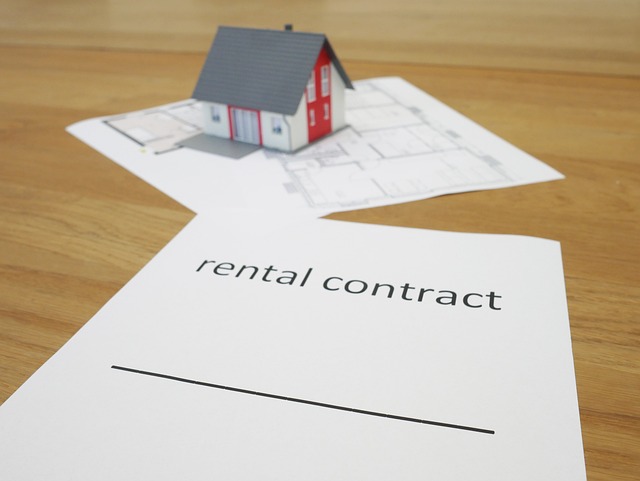How to Find Apartments Without a Security Deposit
Finding an affordable apartment can be challenging, especially when factoring in the often substantial security deposit required by many landlords. However, there are ways to secure a rental without this upfront expense. This article explores various strategies and options for locating apartments that don't require a security deposit, helping renters navigate the housing market more easily.

What are no-deposit rental options?
No-deposit rentals are apartments or housing units that allow tenants to move in without paying a traditional security deposit. These options are often available through specialized housing programs or online platforms designed to make renting more accessible. Some property management companies and individual landlords may also offer no-deposit leases as a way to attract tenants in competitive markets. While these arrangements can significantly reduce the initial costs of renting, it’s important to understand that they may come with other financial requirements or conditions.
How can tenants qualify for no-deposit apartments?
Tenants interested in no-deposit rentals should be prepared to review eligibility criteria such as income level or rental history. Many landlords offering these options will have specific requirements to mitigate their risk. Common qualifications may include:
-
A higher credit score than typically required for standard leases
-
Proof of stable employment and consistent income
-
Positive references from previous landlords
-
A clean criminal background check
-
Enrollment in a rent guarantee program or purchase of a lease guarantee bond
It’s crucial for prospective tenants to thoroughly understand these criteria and assess their ability to meet them before applying for no-deposit apartments.
Where can renters find no-deposit housing options?
Several resources are available for those seeking apartments without security deposits:
-
Online rental platforms: Many websites and apps specialize in listing no-deposit rentals or offer filters to search for such properties.
-
Local housing authorities: Some cities and counties have programs designed to assist renters in securing housing without large upfront costs.
-
Property management companies: Certain firms may offer no-deposit options as part of their leasing strategies.
-
University housing offices: For students, campus housing departments may provide information on no-deposit rentals near the institution.
-
Real estate agents: Some agents specialize in rentals and may have knowledge of no-deposit options in the area.
How do neighborhood comparisons affect no-deposit rentals?
Comparing different neighborhoods helps balance affordability and location when searching for no-deposit apartments. Factors to consider include:
-
Cost of living: Areas with lower overall expenses may offer more no-deposit options.
-
Proximity to work or school: Consider commute times and transportation costs.
-
Safety: Research crime rates and community safety measures in potential neighborhoods.
-
Amenities: Evaluate access to grocery stores, healthcare facilities, and recreational areas.
-
Future development: Look into planned improvements or changes that could affect the area’s desirability and cost.
By thoroughly comparing neighborhoods, renters can identify areas where no-deposit rentals are more readily available while still meeting their lifestyle needs and budget constraints.
What are alternatives to traditional security deposits?
In addition to no-deposit rentals, there are alternative options that can reduce the financial burden of moving into a new apartment:
-
Security deposit insurance: Some companies offer policies that cover the landlord’s risk in lieu of a traditional deposit.
-
Surety bonds: Tenants can purchase a bond that guarantees payment to the landlord if damages occur.
-
Pay-per-damage agreements: These arrangements allow tenants to pay for any damages as they occur rather than providing a lump sum upfront.
-
Gradual deposit payments: Some landlords may allow tenants to pay the security deposit in installments over several months.
-
Cosigner agreements: Having a creditworthy individual cosign the lease can sometimes eliminate the need for a security deposit.
| Alternative | Provider Example | Cost Estimation |
|---|---|---|
| Security Deposit Insurance | Rhino | $5-25 per month |
| Surety Bond | The Guarantors | 17.5% of one month’s rent |
| Pay-per-damage Agreement | Individual Landlords | Varies by damage incurred |
| Gradual Deposit Payment | Property Management Companies | Full deposit amount spread over 3-6 months |
| Cosigner Agreement | Landlords/Management Companies | No direct cost, but financial risk to cosigner |
Prices, rates, or cost estimates mentioned in this article are based on the latest available information but may change over time. Independent research is advised before making financial decisions.
How can renters protect themselves in no-deposit agreements?
While no-deposit rentals can be advantageous, it’s essential for tenants to protect their interests:
-
Read the lease carefully: Understand all terms and conditions, especially regarding damages and end-of-lease responsibilities.
-
Document the apartment’s condition: Take photos and notes during the move-in inspection to avoid disputes later.
-
Maintain renter’s insurance: This can provide additional protection for personal property and liability.
-
Communicate with the landlord: Address any issues promptly and keep records of all interactions.
-
Understand local tenant rights: Familiarize yourself with local laws and regulations regarding rentals and tenant protections.
By taking these precautions, renters can enjoy the benefits of no-deposit apartments while minimizing potential risks.
Finding apartments without a security deposit requires research, preparation, and an understanding of the various options available. By exploring specialized programs, online platforms, and alternative arrangements, renters can reduce the financial barriers to securing housing. Remember to carefully review all terms and consider the trade-offs between upfront costs and long-term obligations when choosing a no-deposit rental option.




